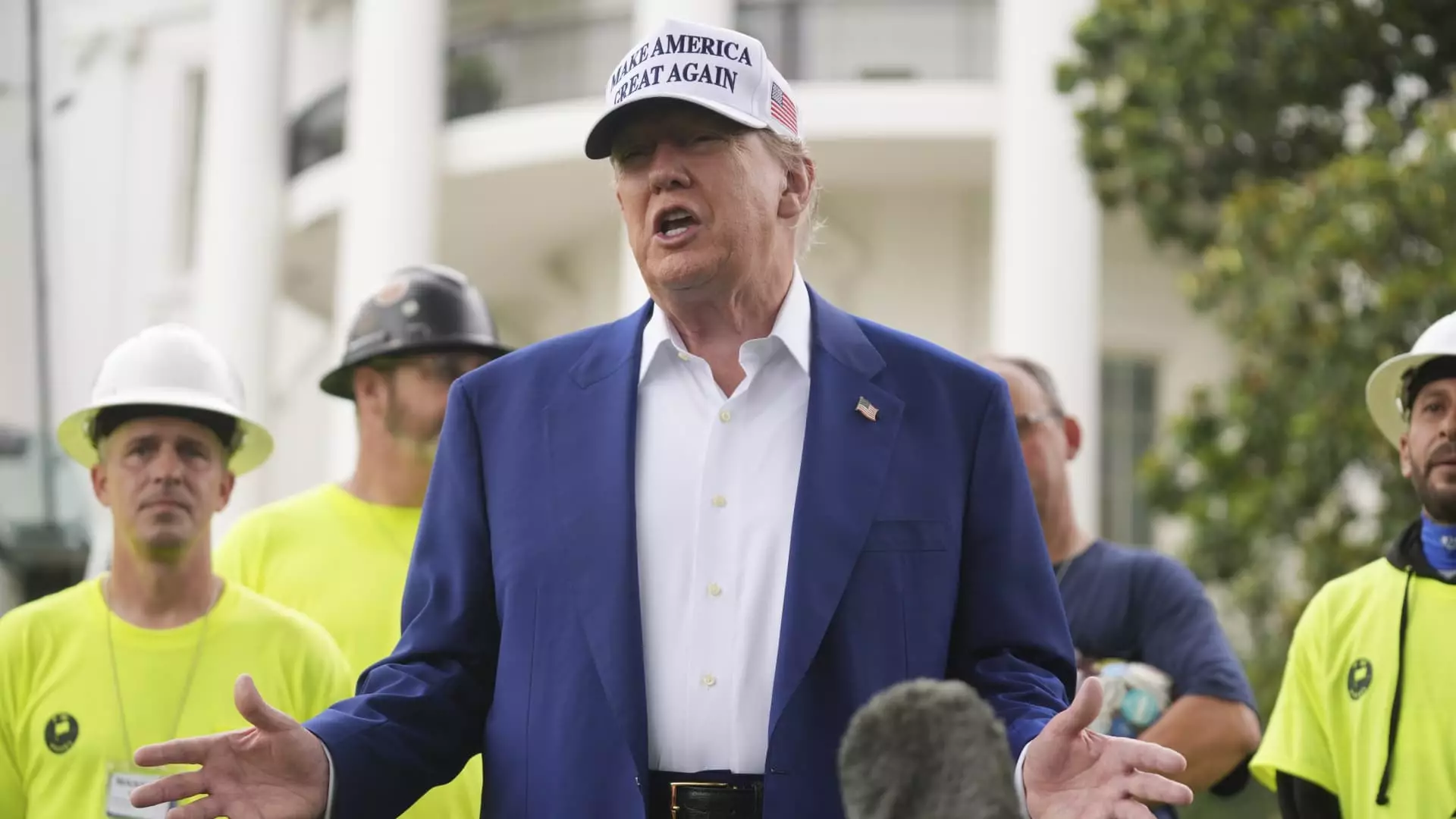In a shocking display of political brinkmanship, former President Donald Trump once again took aim at Federal Reserve Chair Jerome Powell, labeling him “stupid” and criticizing the Fed’s reluctance to cut interest rates. This outburst, occurring just hours before a pivotal Federal Open Market Committee meeting, is not merely a rhetorical flourish; it represents a disturbing trend where monetary policy is increasingly subordinated to the whims of political leaders. Trump’s persistent assaults on Powell shine a light on the troubling intersection of politics and economics, a place where the fallout can affect millions of unsuspecting Americans.
Trump’s claims that the central bank’s borrowing rate should be at least two percentage points lower reflect a fundamental misunderstanding of monetary policy—and perhaps a willful disregard for the complexities at play. He cites Europe’s rate cuts as a benchmark while ignoring the nuanced economic contexts that differentiate the U.S. from its European counterparts. The oversimplification inherent in Trump’s remarks reveals a lack of serious engagement with economic realities, summoning a cavalcade of questions rather than answers.
The Cost of Rhetoric
“The U.S. is losing hundreds of billions in financing costs,” Trump states. Yet, in this assertion lies a perilous oversimplification that masks the intricacies of inflation and monetary policy. The reality is that interest rates are a double-edged sword—too high can stifle growth, but too low can fuel dangerous inflation. Trump’s insistence on cutting rates ostensibly disregards the potential long-term consequences of such actions. His belief that inflation is merely a specter in the economy, one that can be ignored, belies a lack of comprehension regarding the economic pressures exerted by both domestic and global markets.
Moreover, the potential consequences of continuing to attack the Fed go beyond poor economic policy. It destabilizes what is supposed to be an independent institution crucial for financial stability. Trump’s political machinations may be rooted in a self-serving agenda, yet they have tangible ramifications that threaten the economic landscape. By undermining Powell and the integrity of the Fed, he risks eroding public confidence in institutions that should ideally remain above partisan squabbles. This is not just about Trump’s disdain for Powell; it’s about the broader implications of politicizing a financial framework that affects every American’s life.
Resistance to Political Pressure
Interestingly, Powell’s quiet resistance, emphasized by his insistence that the Fed will not yield to political pressure, signals a commitment to monetary independence. This approach may frustrate Trump, but it represents a critical firewall against populist antics illustrated by political leaders who prioritize short-term opinion over long-term economic stability. The Fed’s independence is a bedrock principle of American financial governance, one that, if compromised, could lead to catastrophic misjudgments in future economic policymaking.
Trump’s paradigm of governance, which likely views political gamesmanship as the path to dominance, is fundamentally incompatible with the careful navigation required to manage monetary policy. Dismissing Powell as “not a smart person” because he fails to comply with Trump’s demands once again reaffirms the capriciousness with which Trump engages with pressing financial matters. The eagerness to appoint a “yes man” should raise alarms among citizens hoping for a stable economic future. It is profoundly ironic that Trump accuses Powell of political motivations, all while transparently trying to exert his authority over the central bank.
The Mark of a Hypothetical Chair
In characteristically brazen fashion, Trump has even entertained the notion of appointing himself as the Fed chair. Such delusions of grandeur not only reflect a stunning disregard for the responsibilities inherent in that role but also signal a broader inclination toward authoritarianism—an alarming tendency that is best kept at bay within a democracy that values institutional checks and balances. The thought of placing monetary policy in the hands of someone who equates his personal grievances with national interest is deeply concerning. In this theoretical scenario, the implications extend far beyond interest rates; they encapsulate the potential for a mismanaged economy under gain-driven motives.
While Trump’s bombastic style reveals his character, it also serves to highlight a critical point: economic stability hinges on measured leadership and informed decision-making. The intersection of politics and finance should never be a stage for personal vendettas or knee-jerk reactions. In separating personal feelings from public policy, we open a space for deliberation—a necessity that is sorely lacking in Trump’s approach. Ultimately, the specter of a politically driven Federal Reserve is concerning, and the ramifications of such an event could be devastating for the American economy in the years to come.

